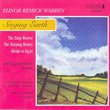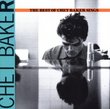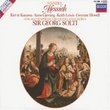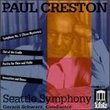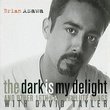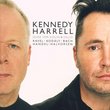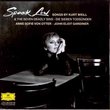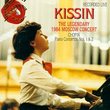| All Artists: Allan Pettersson, Alun Francis, Geoffrey Trabichoff, Glasgow BBC Scottish Symphony Orchestra Title: Allan Pettersson: Symphony No. 13 Members Wishing: 1 Total Copies: 0 Label: Cpo Records Release Date: 1/25/1995 Genre: Classical Styles: Historical Periods, Modern, 20th, & 21st Century, Symphonies Number of Discs: 1 SwapaCD Credits: 1 UPC: 761203922420 |
Search - Allan Pettersson, Alun Francis, Geoffrey Trabichoff :: Allan Pettersson: Symphony No. 13
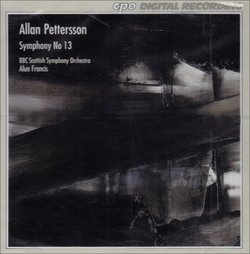 | Allan Pettersson, Alun Francis, Geoffrey Trabichoff Allan Pettersson: Symphony No. 13 Genre: Classical
|
Larger Image |
CD DetailsSimilarly Requested CDs
|
CD ReviewsThe Most Difficult, Demanding, and Worthwhile Symphony M. Stoltenberg | Phoenix, AZ USA | 04/08/2000 (5 out of 5 stars) "After becoming somewhat accustomed to Pettersson's challenging, harsh, and essentially post-hyperromantic style of his 7th and then 6th Symphonies, I ventured tentatively on to this his certainly most difficult to listen to symphony - - the 13th. I honestly had to hear this disc about a dozen times until I was able to get past the first 20 of its pounding and brittle 67 minutes. The first 20 minutes commence with the most chaotic and yet beautiful rush of raw sound that sets the tone for the most disturbing opening to a symphony I have ever heard. Pettersson creates an unending tragic passage that comes to an unresolved close and then leads into the symphony's most demanding portion - - a 40 minute relentless hammering of sometimes almost banal, but nevertheless compelling statement of frustration, anger, and even hysterical comment more on the dissonance of society than the musical cognitions of a man who clearly and rightly articulated that his music could not possibly have been composed out of self-pity, but more out of a pity for the world around him.Multiple hearings, I feel, make it possible to better understand what Pettersson is trying to do in the caustic 40 minute chunk. If one is patient and willing to make the effort to stretch one's ear, mind, and heart to meet Pettersson half-way, one will be rewarded with the last 10 minutes comprised primarily of one of the most tortured and passionate sections for strings I have ever experienced. I do not know which is more unbelievable: that a human being could write a musical statement of such jagged and poignant profundity or that a conductor like Alun Francis and an orchestra like the BBC Scottish Symphony Orchestra could perform it.I think this CD offers that both of these are truly equally unbelievable phenomena that exist for our benefit to facilitate our reaching another vantage point in this world to look upon life with its beauty as well as its paradoxes." A masterpiece from Sweden Håkan Sönnermo | 450 52 Dingle Sweden | 12/24/2001 (5 out of 5 stars) "This is a whole life in 70 minutes, it is definetly one of the greatest symphony's ever written. When you "learn" this piece of music you always want to return to it because it contains what life is: blood, sweat and tears. Listen to it and became bewitched. How is it possible to write such an incredible work?! Allan Pettersson, the brighest star of symphonist, has written music like no one else. Try it. Be patient and you will find a treasure for life!" Pettersson at his original and relentless autobiography! David A. Hollingsworth | Washington, DC USA | 01/07/2002 (5 out of 5 stars) "Discovering the music of Gustav Allan Pettersson (1911-1980) continues to be immensely rewarding yet very challenging. My only regret is that I've waited until recently to unearth the power, the honesty, and the autobiograhical/confessionary aspects of his music.The truth is that to understand his music, I in particular had to listen to it repeatedly, so as to re-define my reactions from a previous listening. As often with Pettersson, his music have a message, that sometimes covers a sub-message beneath it. As Meyer states in his sleeve notes, "Symphony no XIII also represents a permanent challenge to scholarship; here scholars are called to answer questions posed by almost every bar. Owing to its 'brittleness' the symphony may appear to be a provocation, at least for hearers who have not had much practice in listening to Pettersson's works. The symphony will become accessible to such hearers only when they bring the highest level of concentration to the collaborative effort forming the listening experience." For examples, what is the symphony actually saying, especially in the first ten minutes, with ideas that seems to flow yet sometimes conflictive? Why the first sixty-seven minutes of the piece generally stern, mournful, turbulent, and angered suddenly only to have the optimistic proclamation of life at the final few seconds? In many ways, this symphony takes over where the Seventh left off. With Mahler, the optimistism, the will to live, tend to be a gradual build-up process. With Pettersson, however, the ideas are not so strictly ordered and traditional. His music is flowing and controlled, but Pettersson allowed his soul, his subconcious, to speak at will; engaging, challenging, and sometimes, brutally honest. To my mind, Meyer's statement apply to his music in general, especially his earliest works. You may ask if there's at least a sense of musical growth and development during Pettersson's career. The answer is yes, though not as marked as the music of his near contemporaries, like Walton or Tubin. His music identity, shaped by his brutal childhood life and the eventual debilitating health that ultimately ended his life, was firmly established from the onset. His symphonies, typically continuous monumental essays of huge scales and proportions (no less than forty minutes), carries the message of life and death, struggles and victories, being consumed by horror and hardships of life and then overcoming them. But, the greatness behind his music is that Pettersson avoided one-dimensionalism & redunctancy by offering ideas that are fresh and forward moving and directional. Small wonders then that Pettersson has advocates in the likes of Antal Dorati, Stig Westenburg, Leif Segerstam, Alun Francis, et al. Dorati especially made a breakthrough into an international recognition of Pettersson's music with the premiere performance and recording of the Seventh in 1969. This present CD, obviously part of the CPO cycle of Pettersson's symphonies, would be a very good starting point in investigating his works, especially since Alun Francis performance with the BBC Scottish Symphony conveyed every ounce of power, conviction, vividness, and authority. The Seventh symphony, whether under the performance of Dorati (Swedish Society) or Segerstam (BIS), would be a very good starting point also.Whatever you decide, repeated listenings would be essential if you'll want to get the depth and the meaning behind his music. Pettersson will continue to be a focus of discussion and curiosity in generations to come."
|

 Track Listings (1) - Disc #1
Track Listings (1) - Disc #1